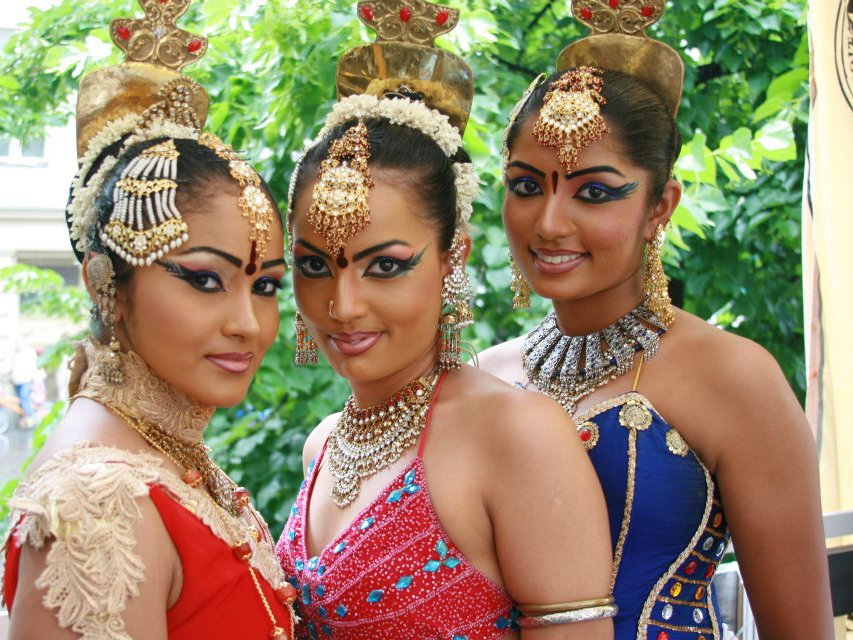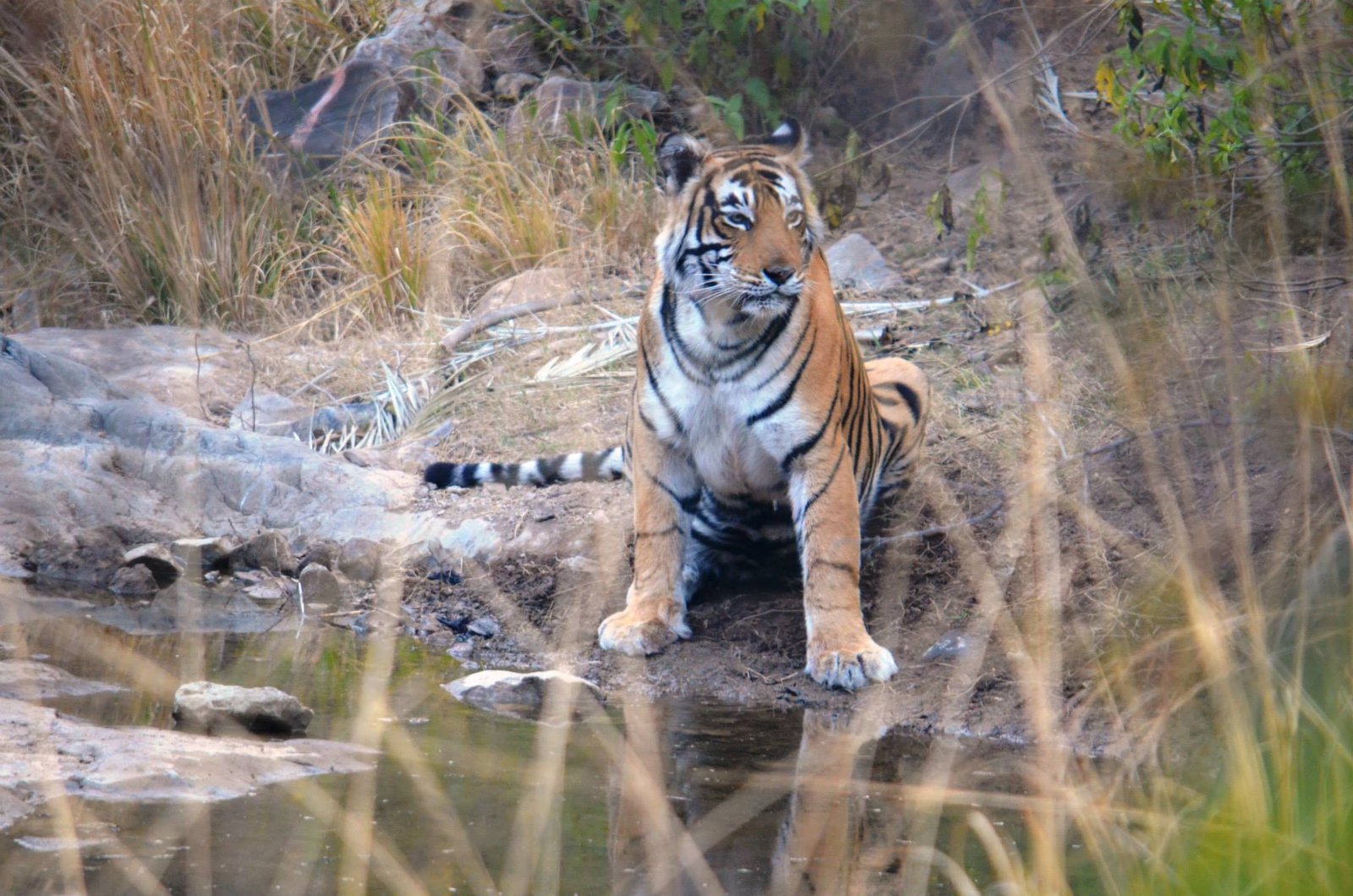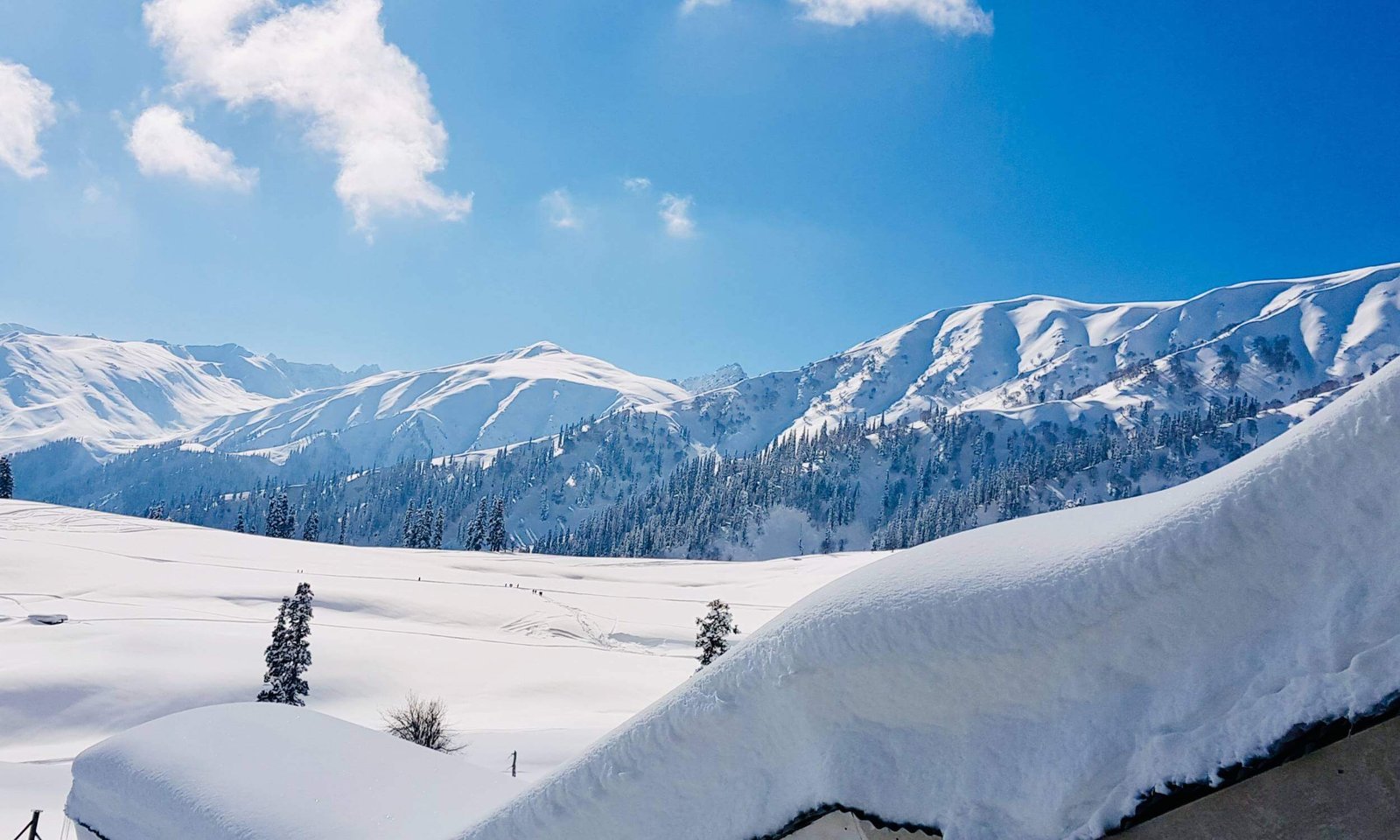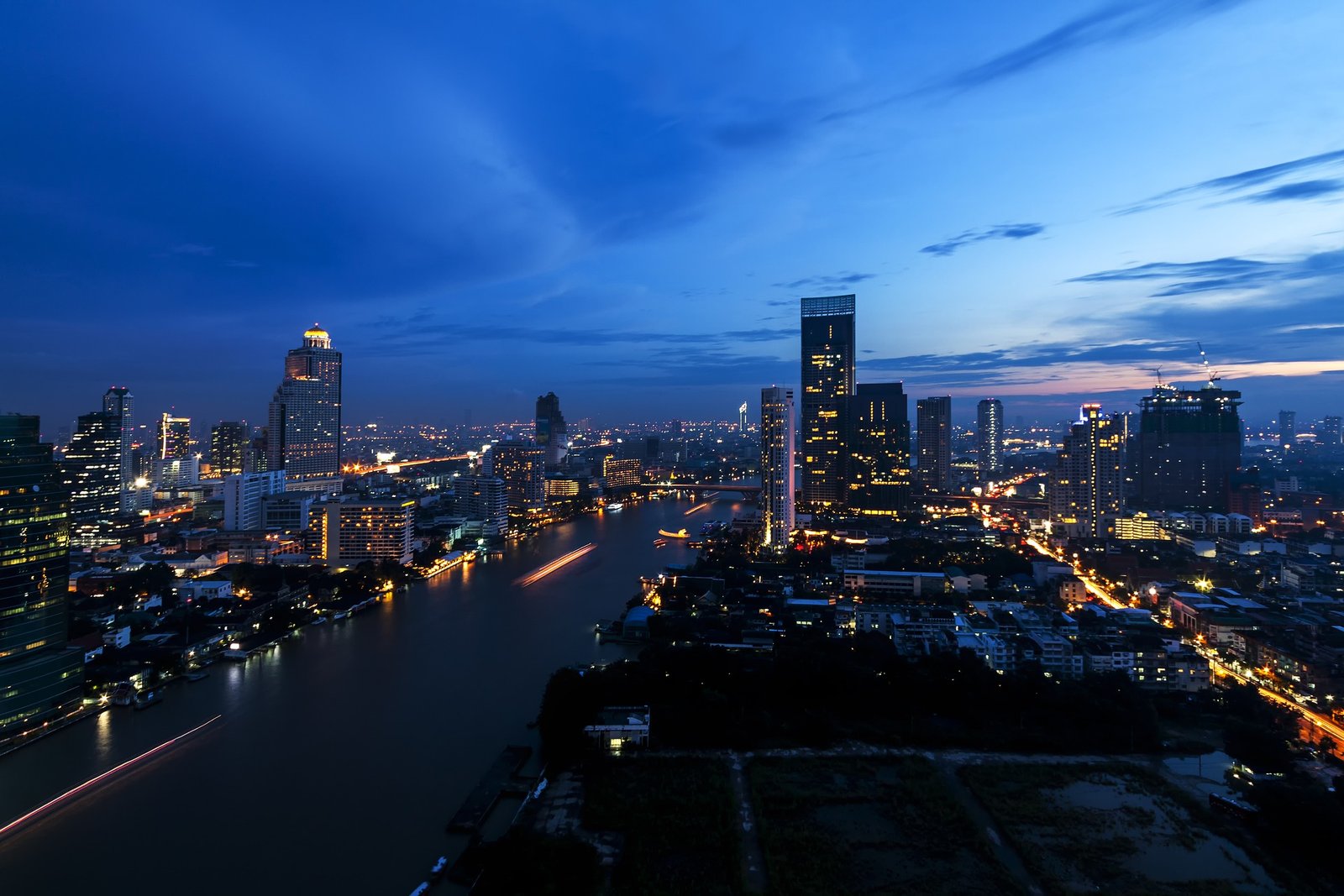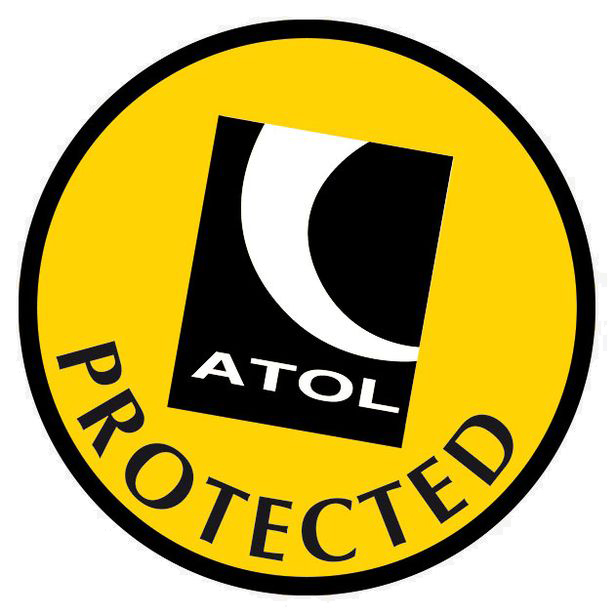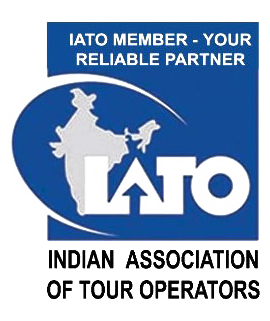Set in the Indian Ocean in South Asia, the tropical island nation of Sri Lanka has a history dating back to the birth of time. It is a place where the original soul of Buddhism still flourishes and where nature’s beauty remains abundant and unspoilt.
Few places in the world can offer the traveller such a remarkable combination of stunning landscapes, pristine beaches, captivating cultural heritage and unique experiences within such a compact location. Within a mere area of 65,610 kilometres lie 8 UNESCO World Heritage Sites, 1,330 kilometres of coastline – much of it pristine beach – 15 national parks showcasing an abundance of wildlife, nearly 500,000 acres of lush tea estates, 250 acres of botanical gardens, 350 waterfalls, 25,000 water bodies, to a culture that extends back to over 2,500 years.
This is an island of magical proportions, once known as Serendib, Taprobane, the Pearl of the Indian Ocean, and Ceylon. Discover refreshingly Sri Lanka!
The National Flag of Sri Lanka has been designed with great care and purpose. It not only represents the country and her heritage, but is a rallying device that integrates the minority races with the majority race.
Sri Lanka used the British emblem when it was a British Crown Colony. We continued to use it even after gaining independence in 1948. According to the recommendations of a select committee appointed to devise a state emblem more suitable for Sri Lanka (Ceylon) we opted for a new State Emblem. It had a Lion with Sword in its right fore-paw encircled with a Palapethi open petal design top. Below there was a strip carrying the country’s name in Sinhala, Tamil and English. A new republican emblem was chosen after the country was declared a Republic on May 22, 1972. In addition to the lion with a sword and the Palapethi open petal design it portrays the Punkalasa, Dhammachakka, sun, moon and two sheaves of paddy.
Sri Lanka, is the home to one of the oldest civilizations in the world. Sri Lanka’s written history exceeds 2550 years. Its pre-history consist of planned cities, magnificent palaces, and expansive man made reservoirs, stunning temples and monasteries, green gardens, hard to believe monuments and works of art are characteristic of the rich and jubilant lives the celebrated monarchy of Sri Lanka lived. Sri Lanka is one of the most delightful destinations in the world to visit.
Sri Lanka; the Natures Treasure Chest is the home to one of the oldest civilizations in the world. Sri Lanka’s written history exceeds 2550 years. Its pre-history consist of planned cities, magnificent palaces, and expansive man made reservoirs, stunning temples and monasteries, green gardens, hard to believe monuments and works of art are characteristic of the rich and jubilant lives the celebrated monarchy of Sri Lanka lived. Sri Lanka is situated to reach in a few hours from any part of the world. It is one of the most delightful destinations in the world to visit.
Sri Lankan’s are always hospitable, smiling, friendly and helpful people.
Sri Lanka has ideal tropical weather all year-round.
Sri Lanka possesses the most beautiful scenery.
Sri Lanka has authentic history with eight world heritage sites.
Sri Lanka is most likely the most bio-diverse Island of its size in the world.
Sri Lanka’s wildlife; Leopards, Bears, Elephants, Wild Buffaloes and Birds.
Sri Lanka’s nature sites of rolling hills carpeted with tea bushes and lush forests.
Sri Lanka has the finest golden sand beaches over 1400 kms in the world.
Sri Lanka has Asia’s most wonderful pageant, the Kandy Esala Perahera.
Sri Lanka has many more colourful festivals throughout the year.
Sri Lanka has eight UNESCO world heritage sites.
Sri Lanka has been able to preserve certain aspects of the performing arts, architecture and religious practices of by-gone civilizations, providing an opportunity for present and future generations to gain some insight into Sri Lanka’s great engineering achievements and ideas and understand why they are still with us today.
Man made reservoirs expanding along the horizon, stupas that reached the sky and functioned as data transmitters, palaces atop rocks adorned with intricate sculpture, water gardens and futuristic landscaping technologies and star gates are just few of the engineering feasts of the ancient Sri Lankans.
Enriched with Buddhism brought down from India nearly three thousand years ago Sri Lankan engineers and artisans created some of the most breath-taking structures in the old world. Built with bricks and carved with stones; these creations found in the ancient cities of Sri Lanka continues to amaze the world.
With nearly 1600 km of of palm fringed Coastline baked to perfection surrounding the country Sri Lanka is the ideal destination for beach bums worldwide. May it be windsurfing, kayaking, yachting, water skiing, scuba diving or jut lazing around for the perfect tan, Sri Lanka offers it all.
The two monsoon winds providing rain to the two corners of the country at various periods, makes Sri Lanka’s beach holiday a year round prospect. The north east winds make the south western coast sunny and the sea calm from November to March. The South West winds make the East Coast waters quiet with the constant sun shine happily in agreement.
The best of the Southern beaches include Tangalla, Beruwala, Mirissa, Bentota and Unawatuna with varying options including chic boutique hotels, glowing coral reefs, gentle sandbars and undiscovered corners of paradise.
Although Sri Lanka’s southern beaches has been long discovered by the international traveller the east coast is yet to be fully discovered. The most known among the Eastern beaches is the Arugam Bay, the high church of surfing enthusiasts’ in the region. Once a mere rumour, Uppuveli beach is also open to the sun seekers after a three decade long civil war.
On the Western corner of the country to the north of Colombo is the Negambo lagoon. Its beaches, an old favourite with local and foreign visitors and lagoon famed for lobster harvesting. Despite having a ring of sandy beaches surrounding the country, Galle Face Green, a half a kilometre stretch between Galle Road and Indian Ocean is the playground of the Colombians.
Tourist Information
Key Facts
Capital: Sri Jayawardenapura-Kotte
Largest city: Colombo
Area: 65,610 sq kms
Population: 20,238,000
Languages: Sinhala, Tamil
Time: Sri Lanka Standard Time Zone (UTC+5:30)
Currency: Sri Lankan Rupee (LKR)
Climate
Sri Lanka’s climate can be described as tropical, in other words, hot and humid. Its position between 5 and 10 north latitude endows the country with a warm climate, moderated by ocean winds and considerable moisture. The mean temperature ranges from a chilly low of 16oC in Nuwara Eliya in the Central Highlands, where even frost may occur for several days in the winter, to a high of 32o C in Trincomalee on the northeast coast.
The average yearly temperature for the country as a whole ranges from 28 to 30oC.Seasons – monsoonAlthough Sri Lanka maintains its lovely warm and tropical climate year-round, the island does experience mild changes in rainfall. The rainy monsoon season takes place from October to January; during the rest of the year there is very little precipitation, and all living creatures must conserve precious moisture. The arid northwest and southeast coasts receive the least amount of rain – 600 to 1200 mm per year – concentrated within the short period of the winter monsoon. May, June and July are probably the hottest months of the year and a great time to hit the beach and soak in the sun.
VISA Information
ENTRY REQUIREMENTS
Visas are required for trips to Sri Lanka. ETA is available and you may submit online and take the approval. Visit the website for ETA : http://www.eta.gov.ik/slvisa/
Local Laws & Customs
You are subject to local laws in Sri Lanka and violating them may result in a jail sentence.
There are severe penalties for all drug offences and crimes related to the abuse of children. In some circumstances detainees can be held without charge, indefinitely and convicted offenders may face lengthy jail sentences.
You can be fined if you ignore instructions not to smoke or drink in certain public areas.
Security checkpoints are common. You must carry a form of official photographic identification on you at all times.
Alcohol and meat are not usually for sale on religious holidays.
Clothes
Cotton garments are ideal as Sri Lanka is a tropical island. However, viscose/cotton mixed garments are commonly worn. Light clothing is recommended in the lowland areas and light woolen clothing is suitable in the hill country. A sun hat and sunglasses may help you to escape the heat during daytime. A good thing to keep in mind is, despite the tropical weather, some hotels have a ‘no shorts’ policy at dinnertime. So bring comfortable alternatives.
Footwear
If you plan to spend most of your time on the beach, bring comfortable sandals. If you intend to hike or do most of your sightseeing on foot, then bring comfortable walking shoes that are easy to pack and clean. Also, if you plan to visit some of the nicer restaurants or nightspots in the city of Colombo, you will need to bring shoes with you as most of these places have “no sandals” policies.
Etiquette
A handshake is the most common form of greeting in Sri Lanka, though try to remember to use your right hand for all physical exchanges. If you are visiting someone’s home, you will likely be offered a cup of tea, and it is considered rude to refuse it. Furthermore, a small gift or souvenir from your home country is a great offering for the host. Appointment times should be kept, as punctuality is appreciated in this country.
Dress is casual in Sri Lanka, though when visiting Buddhist temples you should take extra care to cover your skin and wear your nicest clothes. Be prepared to remove your shoes when entering any temple or home, and never touch the head of a Buddhist. Don’t turn your back on a statue of the Buddha if you are in close proximity. It is fine to take photos of Buddhist statues, but try and face the Buddha when standing next to it. Monks here are held in very high regard, so be extra polite and respectful to them regardless of their age.
Temple Etiquette
When visiting a Buddhist or Hindu temple you should remove your footwear and headgear. Your legs and shoulders should be covered as a sign of respect. Some Hindu temples even ask men to go shirtless in order to enter the inner sanctum. In most temples, you will be asked for a donation. However, the traditional practice is that you make a donation only if you wish to. Any money you decide to donate should be placed in the donation box.
Public Nudity
Public Nudity, including females being topless, is not only unacceptable but also illegal in Sri Lanka, although a few German-owned hotels may make an exception in designated areas. Ask your hotel on their policy about this.
Health Protection & Vaccinations
Vaccinations are recommended for Polio, Tetanus and Hepatitis A & B. Also, the Typhus vaccination is recommended if you plan to venture outside of tourist areas, especially in the wet season
Dengue fever is common on the island, especially during the rainy season when mosquitoes are in abundance as they transmit dengue.
Use mosquito repellent whenever you are outdoors or visiting rural areas
Gampaha, Colombo, Kalutara, Galle, and Nuwara Eliya districts are considered malaria free, as well as the city of Kandy. In the dry season, use mosquito repellent whenever you are outdoors or in rural areas. Especially after sunset when the mosquitoes are in abundance. Malaria pills are warranted for trips to the north but are not available locally
A yellow fever vaccination certificate is required from travelers over 1 year of age coming from infected areas
Customs
Each visitor over the age of 18 years may bring two bottles of wine, 1.5 litres of spirits, and a small quantity of perfume into the country for personal use. Visitors are no longer allowed to bring any tobacco products into Sri Lanka without incurring a duty tax. Although a few packs of cigarettes are allowed for personal use, each carton brought in will cost Rs6,000 in duty tax. Also note that only two members of the same family are eligible for duty-free imports.
Transport
Roads & Road rules
Sri Lanka still follows the British system when it comes to Road rules and Traffic Laws. However, traffic in Sri Lanka has a culture all its own. Within just a few minutes on Sri Lank’s roads, you will notice that traffic laws seem to be more suggestions and the more you weave aggressively through traffic, the faster you will reach your destination.
Roads are narrow, and in poor condition. However, many “A” Class roads are being upgraded to a smoother bitumen surface, as well as being widened with road markings.
What to see
Colombo – the largest city, close to the capital Sri Jayewardenepura Kotte.
Anuradhapura – ruins of ancient capitals (partially restored)
Galle – a home for a Dutch fort, and a a gathering point for travelers from the nearby beach resort villages
Jaffna – Northern Capital ravaged by the civil war
Kandy – the spiritual heart of the country, home to a tooth of the Buddha
Kurunegala
Nuwara Eliya
Polonnaruwa – ruins of ancient capitals (partially restored)
Ratnapura

